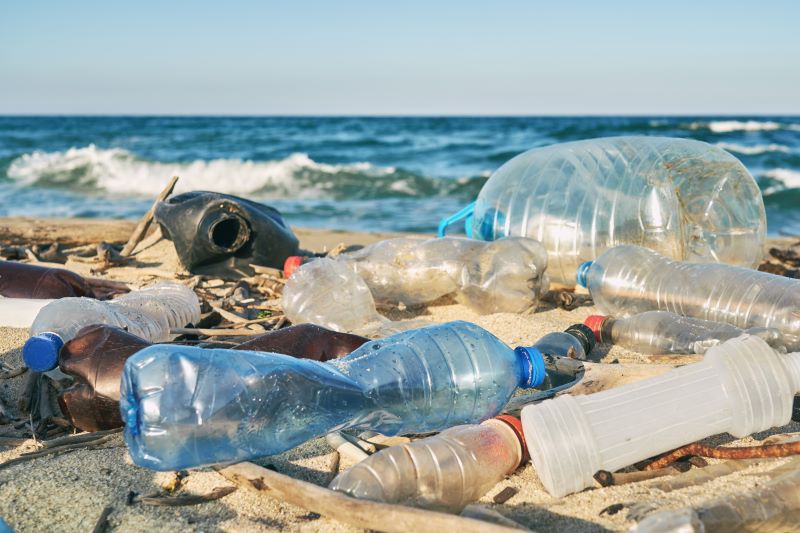20 Firms Produce 55% of World’s Plastic Waste
- Categories:
- Climate Change
- Oceans

Which companies produce the most plastic waste?
Below is the list of 20 companies responsible for producing 55% of the world’s plastic waste:
- ExxonMobil
- Dow
- Sinopec
- Indorama Ventures
- Saudi Aramco
- PetroChina
- LyondellBasell
- Reliance Industries
- Braskem
- Alpek SA de CV
- Borealis
- Lotte Chemical
- INEOS
- Total
- Jiangsu Hailun Petrochemical
- Far Eastern New Century
- Formosa Plastics Corporation
- China Energy Investment Group
- PTT
- China Resources
The total list of 100 top polymer producers compiled in the Plastic Waste Makers index are responsible for producing 90% of all single-use plastic waste generated globally. In their words, “this small fraction hold the fate of the world’s plastic crisis in their hands.”
How is mass plastic production funded?
The production of plastic can only thrive with investment and funding, which is why the Plastic Waste Makers index also focuses on the investors and banks behind it.
By 2050, plastic is expected to account for 5-10% of greenhouse gas emissions.
They found that just twenty institutional asset managers hold over $300 billion worth of shares in the parent companies of polymer producers.
They also found that twenty of the world’s largest banks, including Barclays, HSBC and Bank of America, have lent an estimated US$30 billion for the production of single-use plastic polymers since 2011.
Where is the most plastic waste generated?
According to the index, China is the location where the most single-use plastic waste is generated overall, followed by the United States and then India, with the United Kingdom coming in 5th place. Australia generated the most single-use plastic waste per person, followed by the US, South Korea and the UK.
What does the report recommend?
The report demonstrates that the production of single-use plastic is a major problem, but that a lot of the responsibility can be traced to major corporations, investors and banks. The plastic industry needs regulation and transparency so that we can address these issues.
For the producers themselves, the report recommends greater transparency through them disclosing levels of virgin polymer production vs recycled and the associated carbon footprint. They also raise the valid point that they need to stop talking about sustainability, and actually set real targets for shifting to recycled polymers and commit to using circularity measurement and reporting tools.
When it comes to the investors and banks we mentioned, the Plastic Waste Makers index suggests that they should disclose levels of investment in virgin vs recycled polymers, commit to funding a circular plastics economy and use this as a measure for allocating capital.
However, the report acknowledges that, while these organisations are largely responsible, the actions need to be larger than them. Policy makers will be key here as they can target policies at plastic pollution, create a Paris Agreement-style treaty for plastic pollution and work towards more transparent supply chains globally.
We are currently on a dangerous track and, by 2050, plastic is expected to account for 5-10% of greenhouse gas emissions. Change must therefore be implemented, and soon!
Charities like WWF are working to take action on plastic waste and campaigning to create a global and legally binding UN agreement as a priority.
We are supporting charities like WWF here at SearchScene by donating 95% of the profits we make through advertising.










